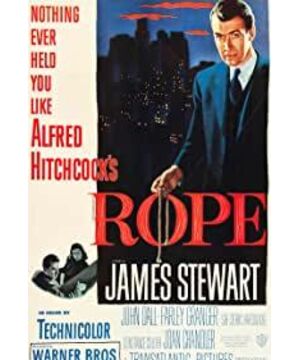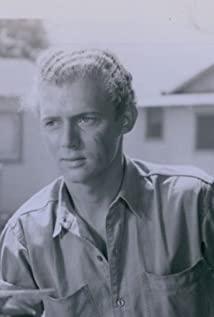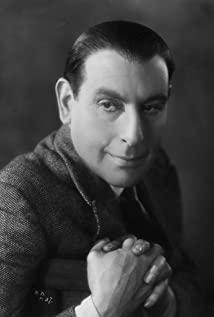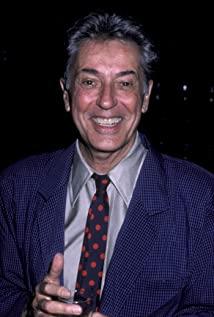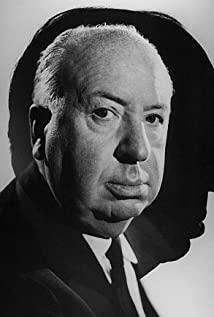In a conversation with French director François Truffaut (writer and director of The Four Hundred Blows), Hitchcock once said something I especially remember: I remind myself not to shoot that kind of absurdity Nonsensical, entertainment-only films that, above all, resonate with the audience. So I thought that the job of making a movie is to tell a story to the audience first, but it should not be an overly generic story, it must be dramatic and human. What is dramatic? In a nutshell, it's what's left after cutting all the boring time out of your life. The world-recognized master of suspense also enjoys a number of brilliant and uncrowned titles such as "World Film Technology Expert", "Technical Treasure Box", "Author Director", "Film Philosopher" and "Film Psychology Master". Behind the uncrowned crown, in addition to the breathtaking suspense and thriller, there are also his innovations in film art and technology, his pure pursuit and strict requirements for creation, as well as his persevering exploration and supreme pursuit of the human spiritual world. care. To this day, film directors around the world continue to draw nourishment from Hitchcock's films. But most people are more concerned about external technical nutrients, thus ignoring the most core nutrients. This is also the deep-seated reason why the master has always been borrowed from, but never surpassed. What are kernel nutrients? I want to talk about 2 points: 1. Movies, should be pure movies About pure movies, Hitchcock used the movie "Rear Window" to illustrate such an example: A man who can't walk looks out the window, this is the first shot; The thing outside the window is the second shot; the person's actual reaction after seeing the thing outside the window is the third shot. This is pure cinema. He once said, "I believe we can tell as much through vision as we can through language." He has always maintained a high degree of trust and respect for the value of pure cinematic vision. For more than fifty years, he has never given up his deep digging and innovation of the lens language in visual technology: "The Tenant" in 1927, the first use of the sin transfer method; "The Thirty-nine Steps" in 1935, which established McGonagall 1939 "Butterfly Dream", further exploration of the McGuffin technique, and the application of the Gothic style; 1946 "Beauty's Plan", which is a proof of the profound practice of the McGuffin technique; Soul Reaper", the first bold attempt to "(pseudo) one shot to the end" shooting technique, and also explored the use of ambient sound to highlight the expression technique of realism; 1954 "Phone Murder", the first time to use stereoscopic film technology ; In 1958, "Ecstasy", in addition to the MacGuffin technique, also used the photography technique of quickly adjusting the distance and distance for the first time to shoot dizzy scenes; "North by Northwest" in 1959, using the montage editing style; ...... This is not What can be done only by talent and talent, but also must always maintain the truest and purest love for movies, so that innovation and surprises can continue to emerge, which makes the name "Alfred Hitchcock". , has become a monument that will never fade in the history of film visual art. So what is pure cinema? It is the director's language through the lens of the film that only conveys the most essential and original intentions to the audience in the most direct way, without mixing any other useless things. Isn't the current movie pure? Neither. After all, many of our directors have been "pure masters" in this area in recent years when it comes to cutting leeks, making money, praising people, or playing the audience like fools. The most serious consequence of this status quo, in my opinion, is nothing else, but these "pure products" greatly reduce the audience's aesthetic taste, because they have no choice, and the audience's requirements for movies are becoming more and more Low. You know, without a "critical" audience, the possibility of the movie will only get smaller and smaller, and its future road will only get narrower and narrower. 2. A movie, it should be a movie about "people", is to record the truth. And people are the reality that should be recorded by the movies. So one of the functions of film is to be an independent tool/medium of recording and expression, for which Hitchcock once said: "Film is just a piece of film put together to create meaning and emotion." Here the "Meaning" and "emotion" refer to the meaning and emotion of "people" and nothing else. In Hitchcock's films, horror, sexuality and death are the central, resident three elements. And these three elements are mainly expressed through the three object groups of "good people who have been wronged", "guilty women", and "psychopaths". Among them, the exploration and excavation of psychopaths and their combination with film art are the most praised. In 1945, "Doctor Edward", with the theme of psychoanalytic psychology, introduced the dream interpretation theory of Freud's psychoanalytic theory into the film, thus creating a precedent for psychoanalytic films; in 1960, "Psycho", using The Oedipus complex in Freud's psychoanalytic theory and the theory of the unconscious make psychological thrillers a sub-genre of horror movies; in 1964, "The Thief" re-introduced psychoanalysis and experienced it in the original family. The causal relationship with the individual’s spiritual alienation adds to the brush and ink; … Hitchcock’s portrayal of psychopaths is by no means superficial, but rather through the deep analysis of film language, he tries his best to objectively describe this group of people. Bring it to the public, fill the blank of this recessive group in the public domain of art, and arouse the outside world's attention and thinking about psychopaths. The switching of the camera lens, the flashing of the picture, the alternation between color and black and white, in addition to wanting the audience to enjoy the thrill and suspense brought by the thrill, Hitchcock also hopes that the audience can see the mysteries in the human psychological and spiritual world, and then Then through the exploration of these mysteries, find the truth of the crime. Is it important to find the truth? Very important. The ultimate purpose of our legal provisions is to demonstrate fairness and justice, and the truth is the proof that fairness and justice are maintained. In 1948's "Reaper of Souls", the innovation of "(pseudo) one shot to the end" in film technology made this film popular. It is for this reason that the core theme of the film itself has been somewhat ignored. In the film, two Harvard students, Branton and Philip, conspire to murder their classmate David and hide his body in a large box. The most amazing thing is that they used the box containing David's body as a dining table and invited David's parents, fiancée, classmates and professors to the dinner. , and everyone happily chatted and dined on David's "coffin". Compared to Hitchcock's other works, the film's suspense and reversal are not the most prominent, but I personally like this work the most. It reminds me of Liu Cixin's sentence in "The Three-Body Problem": "I destroy you, what's with you?" The reason why Branton and Philip murdered David was that they thought that David was too stupid to have life. rights, so they could represent God in an irreversible "judgment" of David. This is the most chilling thing about murderers: the motive for murder is not justified love and hatred, but an unreasonable contempt for life. However, as a human being, whether beautiful or ugly or smart and stupid, everyone has the sole sovereignty over their own life, and no one has the right, let alone the right to deprive it. If we don't insist on finding the truth, the victims will not be able to rest in peace, the families of the victims will not be comforted, and the perpetrators will go unpunished, then the legal trial will be meaningless. The truth exists objectively, and it will not be dissipated by the criminal's lies. So, we see that in Hitchcock's films, there are suspense, thrillers, and crimes, but in the end they all return to the truth. The movie "I'm Not the God of Medicine", which let Xu Zheng win the Golden Horse Award the year before last, swept the box office and word of mouth, isn't it because it restores the truth of the "poor disease" that is related to life and death? The truth about "people", to explore, to find, to expose, to analyze, to speak out, is not only the mission of the director, but also the mission of the film. Only by fulfilling his mission can he be worthy of the titles of "conscience director" and "conscience film". I look forward to and wish Chinese directors and Chinese films. If the perpetrators go unpunished, then the legal trial will be meaningless. The truth exists objectively, and it will not be dissipated by the criminal's lies. So, we see that in Hitchcock's films, there are suspense, thrillers, and crimes, but in the end they all return to the truth. The movie "I'm Not the God of Medicine", which let Xu Zheng win the Golden Horse Award the year before last, swept the box office and word of mouth, isn't it because it restores the truth of the "poor disease" that is related to life and death? The truth about "people", to explore, to find, to expose, to analyze, to speak out, is not only the mission of the director, but also the mission of the film. Only by fulfilling his mission can he be worthy of the titles of "conscience director" and "conscience film". I look forward to and wish Chinese directors and Chinese films. If the perpetrators go unpunished, then the legal trial will be meaningless. The truth exists objectively, and it will not be dissipated by the criminal's lies. So, we see that in Hitchcock's films, there are suspense, thrillers, and crimes, but in the end they all return to the truth. The movie "I'm Not the God of Medicine", which let Xu Zheng win the Golden Horse Award the year before last, swept the box office and word of mouth, isn't it because it restores the truth of the "poor disease" that is related to life and death? The truth about "people", to explore, to find, to expose, to analyze, to speak out, is not only the mission of the director, but also the mission of the film. Only by fulfilling his mission can he be worthy of the titles of "conscience director" and "conscience film". I look forward to and wish Chinese directors and Chinese films.
View more about Rope reviews


